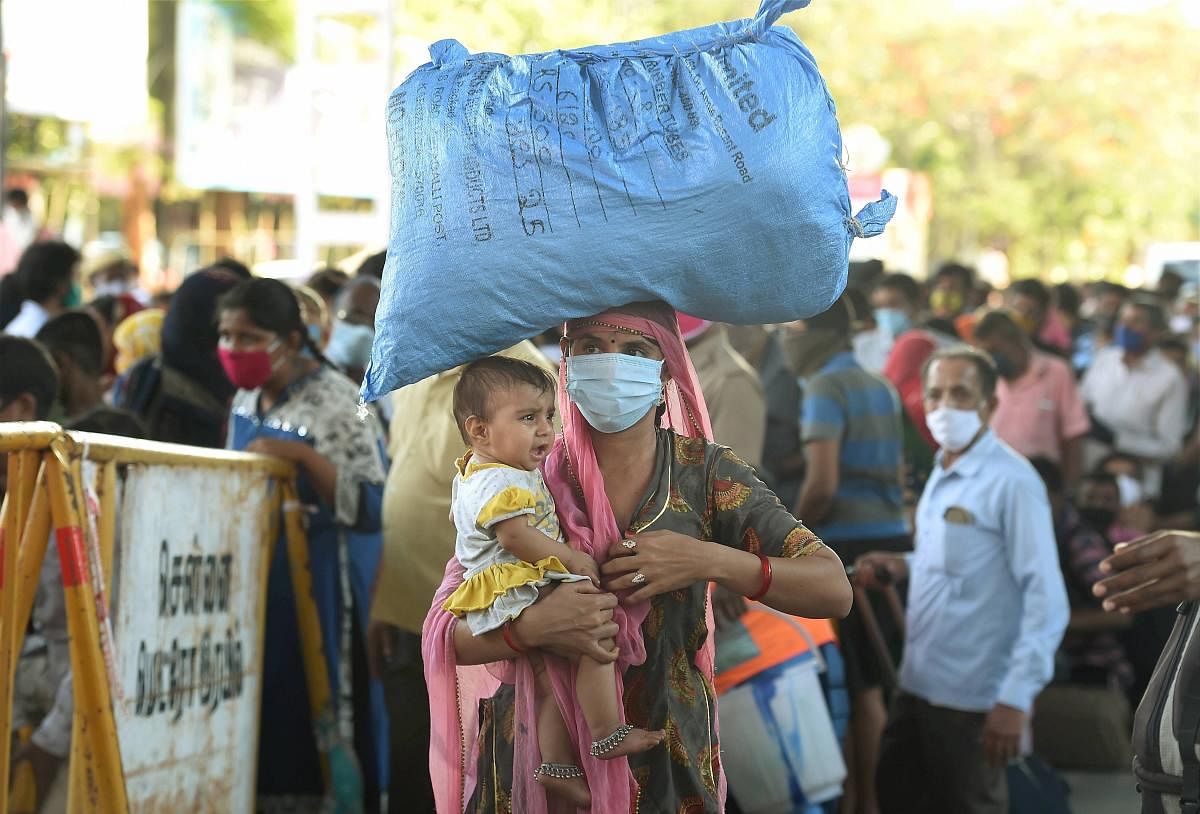
Around 93 per cent of migrants interviewed in a West Bengal–sample survey for assessing the Covid-19 pandemic’s socioeconomic impact, stated that they lost their jobs due to the lockdown.
The findings are part of the study ‘Staying Alive, COVID-19 and Public Services in West Bengal’ and has been conducted by Amartya Sen-led Pratichi (India) Trust.
For observing the status of Bengal’s migrant workers, data was collected from Malda, Murshidabad, and Birbhum, considered the state’s most backward districts. The workers’ responses were recorded between January and April, last year, to capture the effect on their lives after the lockdown was announced.
Around 93 per cent of migrants in the sample survey stated that they lost their jobs due to the lockdown. Of the total migrants, 92 per cent earned their livelihood working as labourers. Three workers out of every four, were the main earners in the family.
Besides returning to their home districts from other parts of West Bengal, migrant workers returned from 17 other states; of the total returnees, 61 per cent came home from southern states, with over four in every 10 from Kerala.
Those who returned worked as mason or helper in the construction sector or in cold stores. The profiles revealed also show that the workers were also employed in garment or jewellery manufacturing companies, or were self-employed.
Only 3.8 per cent of the respondents said that they received cash support from their employers. The food and accommodation support in the destination of work was available to around 33 per cent and 39 per cent of the migrants, respectively.
Shockingly, eight per cent of those who returned revealed that they travelled back in part, or the entire journey on foot or on a bicycle – the longest walk stood out at 250 km, and the cycle journey at 700 km. The survey found that around 67 per cent of the workers migrated back to their destinations of work.
On the other fronts, the sample survey also found that one in five households in West Bengal faced some kind of food crisis that stretched between four and 240 days. Of this, the crisis for the majority remained for two months.
Carried out between July and December in 2020, and during January-April in 2021, the survey covers mother and child care, public distribution system, rural employment scheme, frontline health workers, people’s awareness about the pandemic, and the migrant workers. Over 2,000 respondents -- for studying different groups -- were reached out for the telephonic survey.